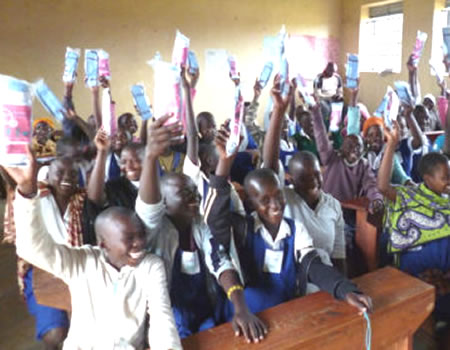Also, in Uganda, absenteeism from school was found by researchers from Oxford University, United Kingdom, to be as high as 17 per cent among schoolgirls who had no access to sanitary pads. Against the backdrop of the outcomes of the foregoing empirical studies, the Kenyan government’s recent initiative would appear to be a laudable one that will not only improve the sanitation and health care of the schoolgirls but also rein in the rate at which they fall back on their studies or drop out of school. However, the government can and should do more: it should go beyond the stop-gap measure of distributing sanitary towels to the girls. It should address the reason for the inability of many of the schoolgirls to afford sanitary pads.
The challenge is that, like many social intervention programmes being executed by governments across African countries, the distribution of free sanitary pads could obfuscate the real fundamental issue of pervasive poverty among the citizenry. And it should be understood that the prevalent insufficiency is in turn largely occasioned by corruption and a poorly managed economy. At the root of lack of access to sanitary pads by schoolgirls is the poor economic or financial status of their parents. This is especially so in Kenya where a similar scheme was implemented in 2011 when the distribution of free sanitary pads was limited to schoolgirls from poor homes. The fact that the current scheme is being institutionalised by way of an enabling law and being expanded in scope to cover all schoolgirls in Kenya can only mean that more and more families have acquired the ‘poor home’ status since 2011. This is the veritable challenge that must be tackled head-on by the government.
Official distribution of sanitary pads is commendable and expected to serve some useful purposes. But realistically, it can only give temporary succour: it is not an enduring panacea to poverty, which is the causal factor. What is urgently required is for the government to evolve strategies to fix the economy and curb corruption. Sadly, Kenya has been consistently ranked as being more corrupt than Nigeria.The unenviable ranking speaks volumes about the enormity of financial heist that is reportedly going on in the country because the level of corruption even in Nigeria is intolerably high. In addition to dishing out official handouts to cushion the effects of poverty in the society, greater attention should be paid to revamping the economy in a holistic and inclusive manner, such that the vast majority of the populace would be empowered.
A thriving economy, all other things being equal, will improve family incomes, including those of the parents of the schoolgirls who will no longer burden the government with the need for official aids to take care of their children. In other words, the real solution is for the government to work at the economy and make life more meaningful for every citizen. That way, the parents of the schoolgirls will be empowered and there will be no reasonable cause for them to ignore, cut corners or abdicate their responsibilities, leaving them for the government to shoulder.
To be sure, the Kenyan government is not being censured for giving free sanitary towels to schoolgirls. Indeed, we commend the government for identifying the felt need of a segment of its society and for using a structured approach to respond to it. Nonetheless, we urge the government to be more proactive in all areas of governance, especially in the efficient management of the economy, in such a way that reactive and stop-gap measures will be reduced to the barest minimum.




